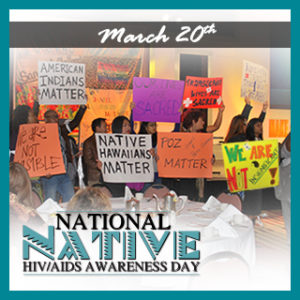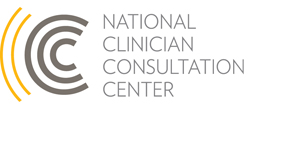National Native HIV/AIDS Awareness Day 2017
 This year, the National Native HIV/AIDS Awareness Day (NNHAAD) theme is “Unity in CommUnity, Stand Strong to Prevent HIV.” On this day, we recognize the impact of HIV/AIDS on American Indian, Alaska Native, and Native Hawaiian communities.
This year, the National Native HIV/AIDS Awareness Day (NNHAAD) theme is “Unity in CommUnity, Stand Strong to Prevent HIV.” On this day, we recognize the impact of HIV/AIDS on American Indian, Alaska Native, and Native Hawaiian communities.
While the rate of new HIV diagnoses in American Indian and Alaska Native (AI/AN) communities is low compared to other communities, they are proportional to the population size: AIs/ANs represent approximately 1.2% of the U.S. population, and accounted for 1% of new HIV diagnoses in 2015. However, HIV remains an important public health issue in these communities overall, and especially for AI/AN gay and bisexual men (CDC). Of the 152 HIV diagnoses among AI/AN cisgender men in 2015, 79% were among gay and bisexual men. Conversely, of the 55 HIV diagnoses among AI/AN cisgender women, 73% were among heterosexual women. While the annual number of new HIV diagnoses has increased 19% for AIs/ANs overall from 2005 to 2014, during this same period it has increased 63% among AI/AN gay and bisexual men (CDC).
Similarly, gay and bisexual men accounted for 78% of new HIV diagnoses among Native Hawaiians and Other Pacific Islanders (NHOPI) in 2014. Additionally, while the overall number of HIV diagnoses among NHOPI declined 5% from 2005 to 2014, HIV diagnoses increased 27% among NHOPI gay and bisexual men (CDC). (Note that CDC combines Native Hawaiians with “other Pacific Islanders” in data collection, and we therefore do not know the exact rates for Native Hawaiians only.)
Structural barriers to culturally appropriate health care, including HIV testing, remain an important challenge to prevention and treatment. The Clinician Consultation Center supports providers in reducing health disparities by providing clinical advice on prevention, treatment, and adherence. All US-based clinicians are welcome to call our consultation lines to receive expert guidance regarding their specific patients, cases, and management dilemmas.
For more information, visit the National Native HIV/AIDS Awareness Day official website, the Indian Health Service (IHS) National HIV/AIDS Program website, and AIDS.gov’s roundup of stories, tools, and events.
 University of California, San Francisco |
University of California, San Francisco |
